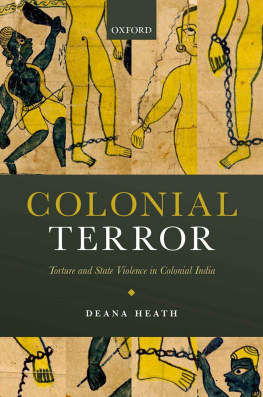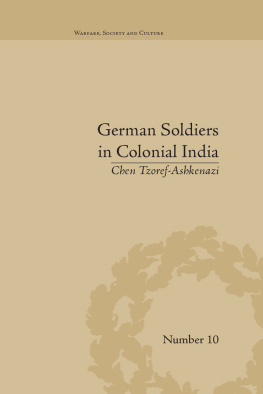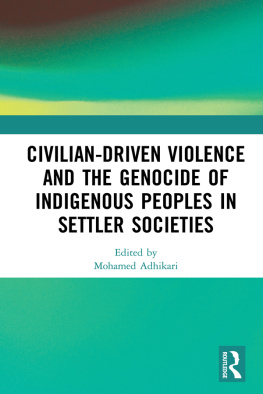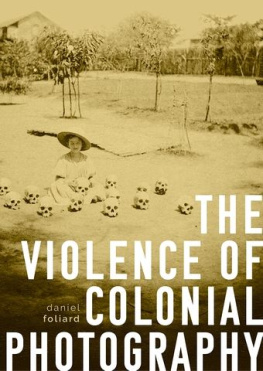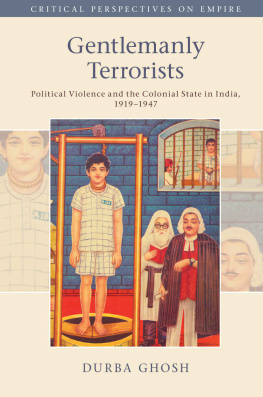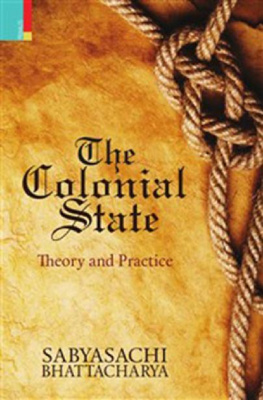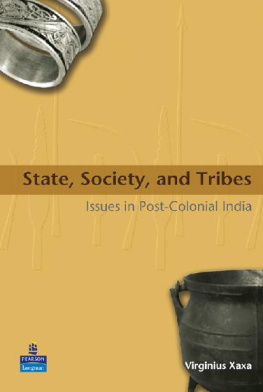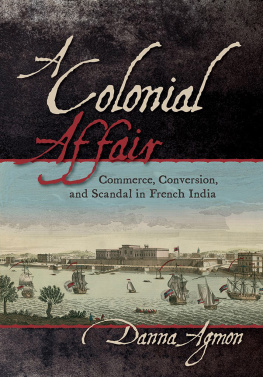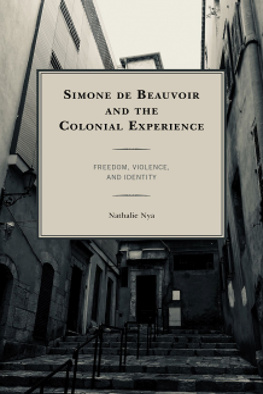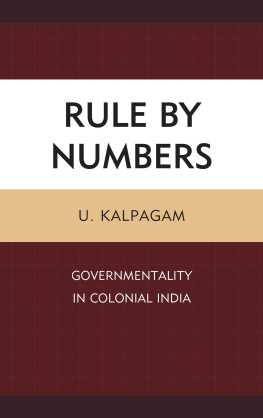Deana Heath - Colonial Terror: Torture and State Violence in Colonial India
Here you can read online Deana Heath - Colonial Terror: Torture and State Violence in Colonial India full text of the book (entire story) in english for free. Download pdf and epub, get meaning, cover and reviews about this ebook. year: 2021, publisher: Oxford University Press, genre: Politics. Description of the work, (preface) as well as reviews are available. Best literature library LitArk.com created for fans of good reading and offers a wide selection of genres:
Romance novel
Science fiction
Adventure
Detective
Science
History
Home and family
Prose
Art
Politics
Computer
Non-fiction
Religion
Business
Children
Humor
Choose a favorite category and find really read worthwhile books. Enjoy immersion in the world of imagination, feel the emotions of the characters or learn something new for yourself, make an fascinating discovery.
- Book:Colonial Terror: Torture and State Violence in Colonial India
- Author:
- Publisher:Oxford University Press
- Genre:
- Year:2021
- Rating:4 / 5
- Favourites:Add to favourites
- Your mark:
- 80
- 1
- 2
- 3
- 4
- 5
Colonial Terror: Torture and State Violence in Colonial India: summary, description and annotation
We offer to read an annotation, description, summary or preface (depends on what the author of the book "Colonial Terror: Torture and State Violence in Colonial India" wrote himself). If you haven't found the necessary information about the book — write in the comments, we will try to find it.
Deana Heath: author's other books
Who wrote Colonial Terror: Torture and State Violence in Colonial India? Find out the surname, the name of the author of the book and a list of all author's works by series.
Colonial Terror: Torture and State Violence in Colonial India — read online for free the complete book (whole text) full work
Below is the text of the book, divided by pages. System saving the place of the last page read, allows you to conveniently read the book "Colonial Terror: Torture and State Violence in Colonial India" online for free, without having to search again every time where you left off. Put a bookmark, and you can go to the page where you finished reading at any time.
Font size:
Interval:
Bookmark:
Colonial Terror
Torture and State Violence in Colonial India
DEANA HEATH
Reader in Indian and Colonial History, University of Liverpool


Great Clarendon Street, Oxford, OX2 6DP,
United Kingdom
Oxford University Press is a department of the University of Oxford.
It furthers the Universitys objective of excellence in research, scholarship,
and education by publishing worldwide. Oxford is a registered trade mark of
Oxford University Press in the UK and in certain other countries
Deana Heath 2021
The moral rights of the author have been asserted
First Edition published in 2021
Impression: 1
All rights reserved. No part of this publication may be reproduced, stored in
a retrieval system, or transmitted, in any form or by any means, without the
prior permission in writing of Oxford University Press, or as expressly permitted
by law, by licence or under terms agreed with the appropriate reprographics
rights organization. Enquiries concerning reproduction outside the scope of the
above should be sent to the Rights Department, Oxford University Press, at the
address above
You must not circulate this work in any other form
and you must impose this same condition on any acquirer
Crown copyright material is reproduced under Class Licence
Number C01P0000148 with the permission of OPSI
and the Queens Printer for Scotland
Published in the United States of America by Oxford University Press
198 Madison Avenue, New York, NY 10016, United States of America
British Library Cataloguing in Publication Data
Data available
Library of Congress Control Number: 2020951482
ISBN 978-0-19-289393-2
eISBN 978-0-19-264616-3
DOI: 10.1093/oso/9780192893932.001.0001
Links to third party websites are provided by Oxford in good faith and
for information only. Oxford disclaims any responsibility for the materials
contained in any third party website referenced in this work.
To Gene and Marlowe
As in the case of any project that has developed over a considerable period of time, this one has incurred many debts of gratitude, not least in terms of financial and research support. The projects genesis was laid during a year-long fellowship from the Indian Council for Cultural Relations, which although awarded for a rather different undertaking led to the discovery of this one in the National Archives of India. I would particularly like to thank both Shahid Amin and former ambassador to Ireland, P. S. Raghavan, for supporting my application for this fellowship. Additional funding from the Universities of Alberta and Liverpool enabled me to pursue further research in the India Office records and private papers at the British Library. Jaya Ravindran, Assistant Director of the National Archives of India, and her staff, as well as staff at the British Library, offered invaluable help in locating and accessing the materials on which this project is based. Colonial Terror would not have been possible, however, without the support of the Independent Social Research Foundation (ISRF), which provided me with a year-long grant to conduct additional research and write a first draft, along with the intellectual stimulation, through its interdisciplinary conferences, workshops, and publications, to push the boundaries of my own research and discipline in new directions. I am particularly grateful to Louise Braddock, Rachael Kiddey, Lars Cornelissen, and Stuart Wilson for their encouragement and assistance, to David Arnold, Martin Thomas, and Andy Davies for their endorsement of this project, as well as to the many ISRF fellows with whom I have debated and discussed a wide range of issues relating to violence.
Many others have shared their knowledge and insights with me about colonialism, violence, and policing. I owe special thanks to Jinee Lokaneeta and Santana Khanikar, whose work on policing and violence in post-colonial India, along with the many discussions we have had, have been inspirational, in addition to the participants at the three workshops we have held in Liverpool and Delhi on issues related to this bookparticularly Sharib Ali, Esaar Batool, Pratiksha Baxi, Anjuman Ara Begum, Uma Chakravarti, Veena Das, V. Geetha, Shalini Gera, Anindita Ghosh, Will Gould, Vrinda Grover, Sanjoy Hazarika, Beatrice Jauregui, Babloo Loitongbam, Nivedita Menon, Shivangi Narayan, Steven Pierce, Vikash Narain Rai, Bhavani Raman, Pooja Satyogi, Abdul Wahid Shaikh, Gagan Preet Singh, Ujjwal Singh, Sunita Toor, and Arvind Verma. The members of both the Foucault and the Power and the Archive reading groups at the University of Liverpool have played an especially important role in helping me to develop the theoretical insights that shape this book, in particular Mike Rowe, Rabeeah Aslam, and James Lowry, and my PhD students Hannah Kelly, Tilly Reeves OToole, Louise Roberts, Catherine Tully, Emily Warrilow, and Beth Wilson. So, too, did the participants in the week-long workshop I organized at Cambridge in 2017 (funded by the ISRF) on the civilizing violence of colonialism, especially Zahid Chaudhary, Daniel Grey, Stephen Morton, Pablo Mukherjee, Gavin Rand, Dan Rycroft, Jonathan Saha, Ajay Verghese, and Claire Wintle.
I am also grateful for the many others who shared both their work and their insights and suggestions, including Ritu Birla, Elizabeth Kolsky, Tim Parsons, Darius Rejali, Mitra Sharafi, and Radhika Singha. I owe considerable gratitude, as always, to Steve Legg, for helping me to think through issues relating to sovereign power and governmentality and for his exhaustive knowledge of relevant publications, along with Colin Gordon, Patrick Joyce, and the members of the South Asian Governmentalities research group. In addition, those who commented on all or parts of this manuscript, including Jonathan Saha, Wendy Lee, and David Whyte, as well as the anonymous reviewers, were instrumental in encouraging me to rethink aspects of my arguments.
Elements of this book have been presented at the South Asia seminar series at Cambridge University, the Global History seminar series at Leeds, the Global History AHRI Seminar, University of Dundee, the Centre for International Politics, Organisation and Disarmament at Jawaharlal Nehru University (JNU), and the Centre for Comparative Politics and Political Theory at JNU, as well as at the following conferences, workshops, and symposia: Hard and Soft Power: Questions of Race, Intimacy and Violence in the Comparative Colonial Toolkit at the University of Kent; Violence, Colonialism and Empire in the Modern and Contemporary World at the British Academy; the 42nd and 44th Annual Conferences on South Asia at Madison, Wisconsin; Re-engaging Elaine Scarrys The Body in Pain: A Thirteenth Anniversary at the University of Brighton; What is the History of the Body? and Foucault, Political Life, and History: South Asian Governmentalities, both at the Institute of Historical Research; Global Networks of Violence and Refining the Legal Lens: New Directions in Modern Indian Legal History, both at Cambridge University; Empire and Policing, at the University of Liverpool; the Law and Society Conference, Mexico City; Policing in South Asia: Dilemmas of Governance and the Making of Participatory Communities and The State, Policing, and the Law: Understanding the Genealogies and Nature of Police Violence in India, both at Jawaharlal Nehru University; ISRF Workshop: Relating Pasts and PresentsHistory of Science and Social Science, in Berlin, and the ISRF Annual Workshop: The Question of Violence, at Oxford University; and, lastly, the British Association of South Asian Studies Annual Conference at Durham University.
Next pageFont size:
Interval:
Bookmark:
Similar books «Colonial Terror: Torture and State Violence in Colonial India»
Look at similar books to Colonial Terror: Torture and State Violence in Colonial India. We have selected literature similar in name and meaning in the hope of providing readers with more options to find new, interesting, not yet read works.
Discussion, reviews of the book Colonial Terror: Torture and State Violence in Colonial India and just readers' own opinions. Leave your comments, write what you think about the work, its meaning or the main characters. Specify what exactly you liked and what you didn't like, and why you think so.

